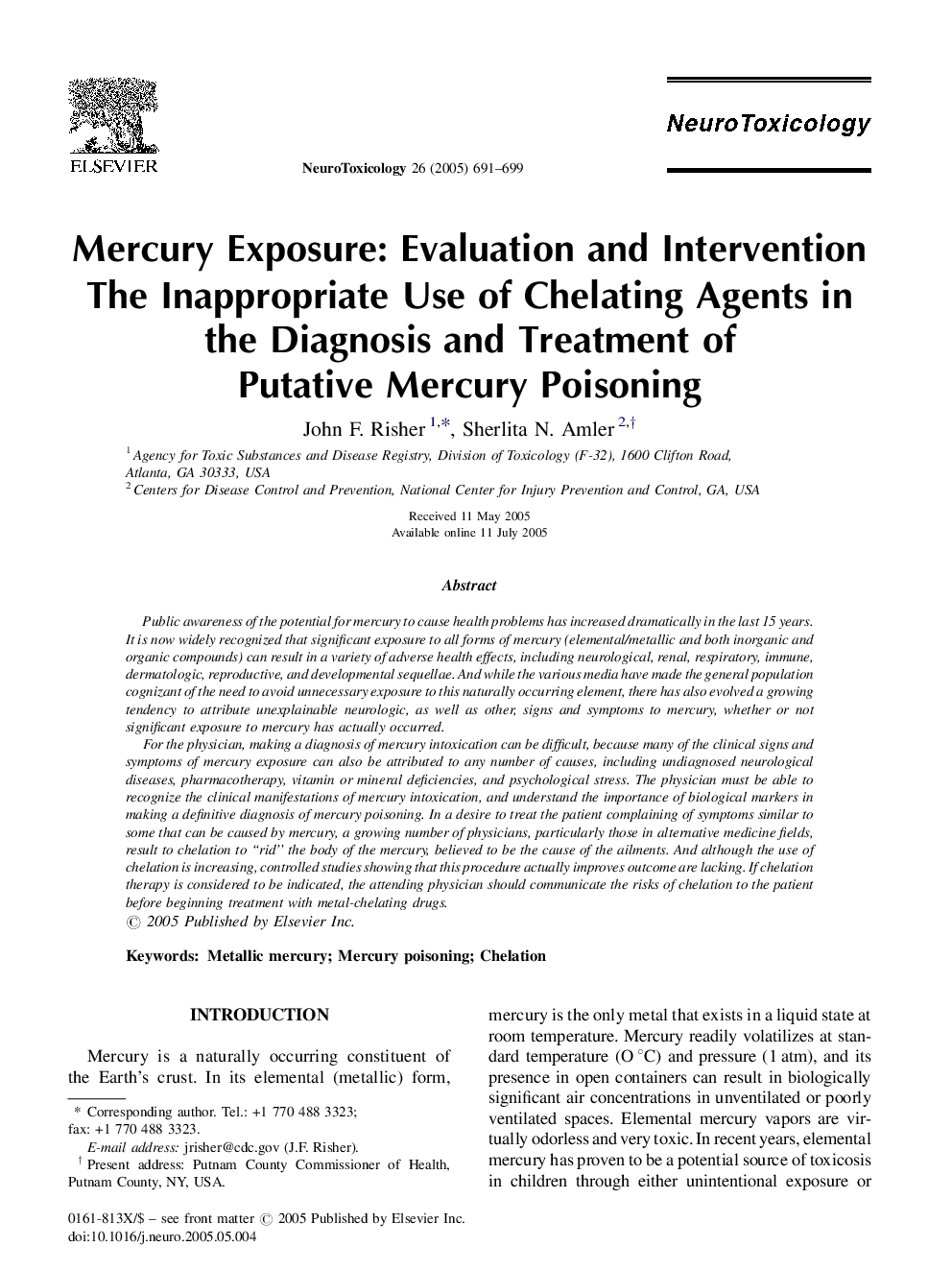| Article ID | Journal | Published Year | Pages | File Type |
|---|---|---|---|---|
| 9032162 | NeuroToxicology | 2005 | 9 Pages |
Abstract
For the physician, making a diagnosis of mercury intoxication can be difficult, because many of the clinical signs and symptoms of mercury exposure can also be attributed to any number of causes, including undiagnosed neurological diseases, pharmacotherapy, vitamin or mineral deficiencies, and psychological stress. The physician must be able to recognize the clinical manifestations of mercury intoxication, and understand the importance of biological markers in making a definitive diagnosis of mercury poisoning. In a desire to treat the patient complaining of symptoms similar to some that can be caused by mercury, a growing number of physicians, particularly those in alternative medicine fields, result to chelation to “rid” the body of the mercury, believed to be the cause of the ailments. And although the use of chelation is increasing, controlled studies showing that this procedure actually improves outcome are lacking. If chelation therapy is considered to be indicated, the attending physician should communicate the risks of chelation to the patient before beginning treatment with metal-chelating drugs.
Related Topics
Life Sciences
Environmental Science
Health, Toxicology and Mutagenesis
Authors
John F. Risher, Sherlita N. Amler,
